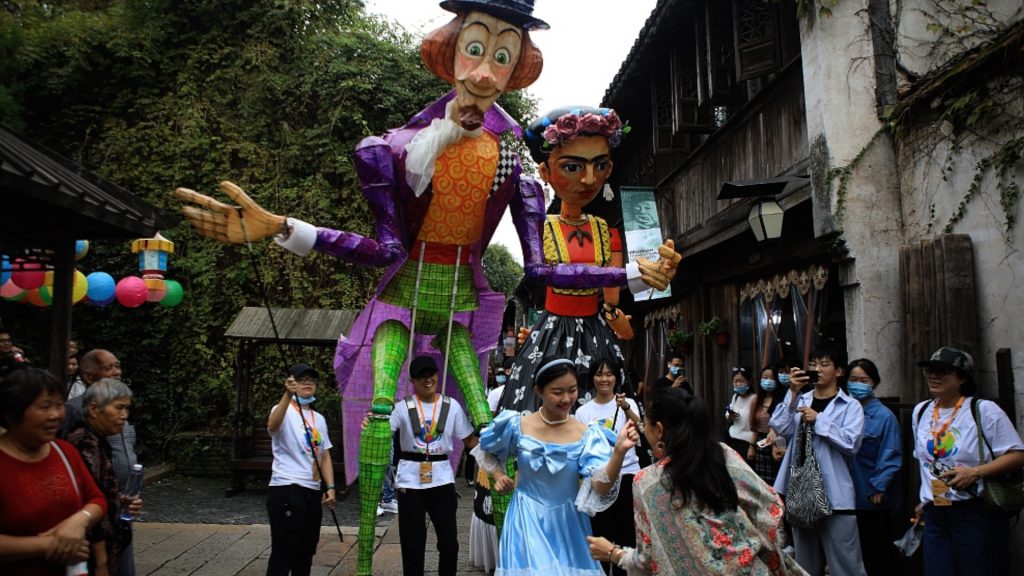This year’s Wuzhen Theater Festival tried to pretend the events of the past two years never happened. The results were as comforting as they were irrelevant.

When the Wuzhen Theater Festival returned this October after a year off due to COVID-19, organizers faced a much-changed industry landscape. Last year was dismal for theaters worldwide, and while performance halls are reopening their doors and life is seemingly returning to normal, the upheavals of the past two years, both personal and political, mean there’s no going back to our pre-coronavirus lives.
Inside the global theater community, the pandemic has sparked a heated discussion on the nature of the dramatic arts. With international troupes still unable to enter the country, this year’s festival took place at a remove from these debates, but not outside them. Featuring almost two dozen Chinese dramatic works, the event promised to be a showcase of the country’s theater scene. I was eager to see how the best and brightest of the Chinese theater world would respond to our new context.
Unfortunately, the shows at this year’s festival seemed less interested in tackling the challenges of the past two years than celebrating our survival. Rather than provoking or nettling theatergoers as in years past, the performances were staunchly audience-friendly — perhaps overly so.
The clearest indication of this was the near-total absence of controversy from this year’s festival. The 2018 Wuzhen Theater Festival opened defiantly with director Meng Jinghui’s subversive interpretation of the famous 1957 Lao She play “Teahouse.” Meng overturned just about every convention associated with the play to put together a refreshing spin on Lao She’s work, and the result was divisive in the best way, leading to heated debates among viewers. Continue to read the full article here
– This article originally appeared on Sixth Tone.





